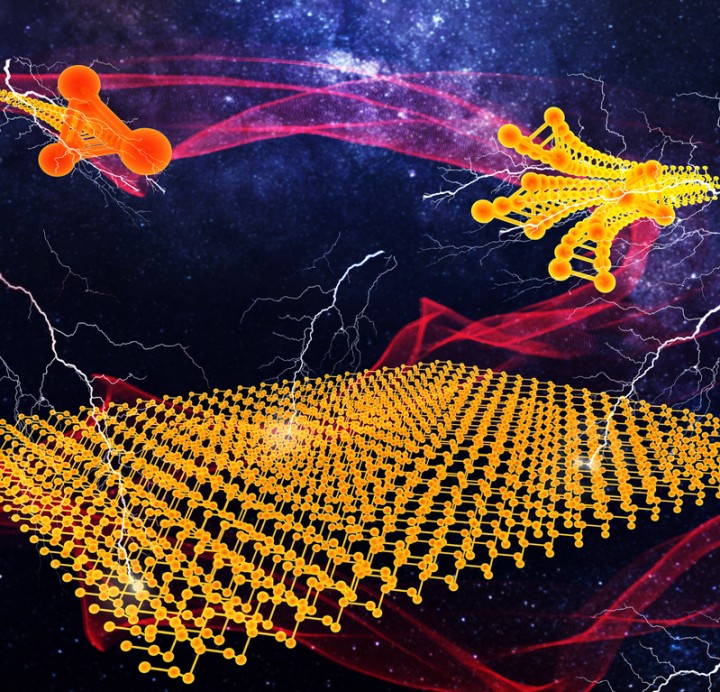HIT All Media (Astronautics/Article) Recently, A/Prof. Chao Wang and Prof. Xiaodong He from the Center for Composite Materials and Structures, School of Astronautics, employed an in situ SEM nanomechanical testing system to reveal the anisotropic mechanical properties of individual 2D t-Se nanosheets, and for the first time, quantified the intensity of van der Waals (vdW) interactions between selenium (Se) atom chains. Their work laid the foundation for promising applications of advanced 2D materials. The paper, entitled Mechanical Anisotropy in Two-dimensional Selenium Atomic Layers, was published in Nano Letters, an authoritative academic journal in the field of nanomechanics. For this paper, our university was the first corresponding institution; Jing-kai Qin, doctoral candidate in a joint-education programme, and A/Prof. Chao Sui were co-first authors; A/Prof. Chao Wang and Prof. Xiaodong He were co-corresponding authors.
Trigonal selenium (t-Se) has recently emerged as a promising semiconductor material due to its outstanding photoelectric properties. We know that the mechanical property in a material plays a key role in practical applications, but we can hardly measure this mechanical property for a nano-sized 2D t-Se with traditional mechanical testing methods. Further, 2D t-Se are composed of well-aligned one-dimensional Se atomic chains bonded via van der Waals (vdW) interaction, featuring significant orthogonal anisotropic structure, but the contribution of this unique anisotropic nanostructure to its mechanical properties is yet to be explored.
For these questions, A/Prof. Chao Wang and Prof. Xiaodong He, together with their co-researchers, used a bending apparatus combined with Raman spectroscopy to study the structural anisotropy of 2D t-Se NSs under uniaxial tensile strain along the c-axis and a/b-axis. Tensile mechanical properties and fracture behaviors of 2D t-Se NSs along these two distinctive directions were studied using a quantitative in situ SEM nanomechanical testing platform combined with molecular dynamics (MD) simulations and density functional theory (DFT) calculations. Most importantly, the quantitative testing of the intensity of vdW interactions between Se atom chains provided evidence on the roles of nano-sized vdW for assembling 2D materials, offering novel insights for utilizing such effects in 2D materials structural design.
original link:https://pubs.acs.org/doi/10.1021/acs.nanolett.1c02294



